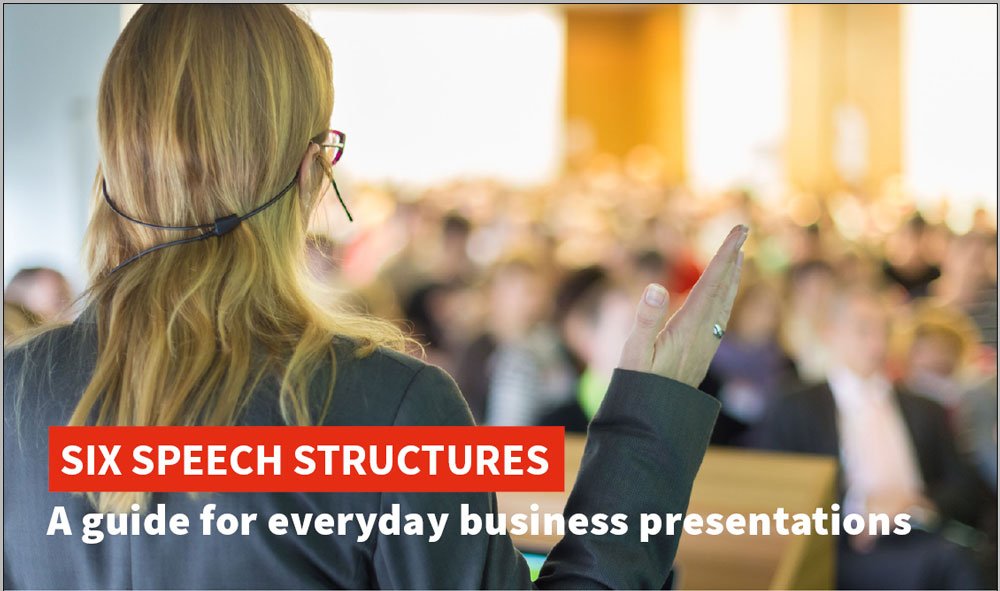How to Overcome Your Fear of Public Speaking in 6 Mostly Easy Steps


Presentation Guru is dedicated to helping professionals communicate with real impact in pursuit of whatever they do. We want designers to design, speakers to speak and teachers to teach to the absolute limit of their imagination. In this article Sandra Zimmer talks about her life’s work: her unending quest to help people held back by the fear of speaking out to share their message with the universe. Here, she shares a fascinating insight into her beliefs and the approach that has helped so many people.
My Method to speaking in public focuses on transforming people who have a fear of public speaking into much more confident speakers. My clients are primarily business professionals who are good, often brilliant, at what they do, but who just aren’t comfortable sharing their ideas, insights and expertise in front of groups.
The process uses whole-person learning exercises, integrating physical, mental, emotional and spiritual aspects of the speaker so that he or she is speaking from presence rather than performance. Presence is the unifying energy that connects all us humans into the experience of oneness. It is that state of consciousness where athletes find the zone, artists experience the flow state, people who are passionate lose the sense of time while doing what they love to do, and speakers flow their thoughts by speaking from the heart.
The Method was inspired by an experience I had on Maui in 1985 while acting on stage in the musical Camelot. I was right in the middle of my big show-stopping scene, walking across center stage, performing in front of 200 people, when I must have taken a deep, body-expanding breath. My belt, which snapped at the waist and held my entire costume together, UNSNAPPED!
My conscious awareness snapped into a state of presence unlike anything I had ever experienced as an actress. Frankly, up until this moment, I had been a good actress, but not a great one, because I didn’t know how to just be present on stage. Suddenly, I was totally present in the moment and really comfortable in my body. I noticed a fullness in my body as if I were inhabiting my body in a new way that just felt good.
In that state, my body was deeply grounded and my mind was completely crystal clear. My awareness also expanded to fill the entire auditorium. I felt magnificent and enormous. Even more wonderfully, I was in touch with the audience in some palpable, spiritual way. I felt connected with them as though we were at one.
Connecting with your audience
I felt a sense of we are here together rather than I am up here performing for you. The audience was feeding me some kind of support energy. I actually saw their support energy coming towards me like light rays that caused my body to be flooded by a wash of love energy. I seemed to have energetic strings to everyone in the audience. I was somehow in a state of being fully present with them that I experienced as a deep relaxation in my physical body.
This state of being present transformed my relationship with that audience. I was no longer performing for them, I was being with them. It lasted the rest of that night and then by the next morning it was gone. I did not know how to get back to that marvellous state of presence on stage for the rest of the Camelot performances, but that experience changed my perception about being the center of attention.
It planted a seed of awareness about the quality of deep connection that was possible to be experienced between performer/presenter and audience when one is in a state of grounded, full-bodiedness. It set me on a journey to explore what it takes to become more grounded, aware of being more comfortable in my skin, and more present in the moment both on and off stage.
Unlocking people from stage fright
Four years later, I realized that the key to unlocking people from ‘stage fright’ was to be found in developing full-body awareness and presence at the center of attention. Let me explain what I mean to bring it to vivid life.
Most professional people who have stage fright are too focused inside their heads. That means they have too much awareness above the neck and not enough awareness in the parts of their bodies below the neck. Being in your head keeps you focused in mental judgement of yourself and of others. Speakers who are in their heads are overwhelmed by fear of judgement from audiences and by the self-judgement of expecting themselves to be perfect.
All that judgement keeps you out of the present moment and in a state of high anxiety. You can’t relax into the present moment to be with the audience and enjoy sharing your ideas, insights and expertise.
Once you learn to get grounded, relax deeply into your body and experience full-body awareness at the center of attention, you stop judging yourself and audiences. The comfort felt in your skin automatically creates a sense of safety and a unified relationship with audience members. Because you are at one with yourself, you can feel at one with your audience!
Step-by Step through the Zimmer Method
There are 6 steps which, I believe, guide people to transform their fear of public speaking into a state of presence where they connect easily with their natural abilities to speak authentically in front of others. That frees them from self-limiting beliefs and helps them connect with their audience in a deeper way than most people can ever imagine. Those 6 steps are:
Step 1 – Ground the Body
I teach a simple grounding exercise to help participants learn to relax deeply in their bodies so they can access the state of presence where their body, mind, emotions and spiritual selves become integrated. Grounding establishes a sense of inner strength, solidity and safety so people feel comfortable in their skin and free to be genuine in front of other people. They feel whole rather than scattered.
Step 2 – Release the Tension of Being the Center of Attention
In this step, I facilitate participants to stand at the center of attention of the group, to focus attention on the tension they notice in their bodies and to describe their inner experience to the group. With surprising ease, the tension dissipates and turns into a feeling of inner flow. They find themselves calm, comfortable and open in front of the group to a degree they have never experienced. The more they do this exercise, the faster the tension clears.
Step 3 – Make a Genuine Connection with Audience
Participants learn to make a genuine connection by opening to receive the flow of attention as support. They learn to see people in the group with a soft eye contact which results in a palpable sense of connectedness – the sense that we are here together. Soft eye contact facilitates an experience of oneness, a rich sense of acceptance for and from the audience. The speaker feels supported and audience members feel seen.
Sep 4 – Learn to Wait for Thoughts in Order to Think on Your Feet
To think on their feet, speakers must stay present and grounded in their legs and feet, think their thoughts and say what they are thinking. The secret to this step is to learn to wait for thoughts to arise in the mind. By this point, participants are so comfortable in their skin that it is fairly easy to learn to wait for a thought and then let it come out of the mouth as a stream of words to express that thought. Through this practice, people learn to trust themselves to say what they are thinking. They begin to speak from the heart, allowing that to become their own natural style of speaking.
Step 5 – Practice Telling Stories and Lessons Learned
Stories are the key to freeing the speaker’s physical and emotional expressions and to creating audience engagement. I believe everyone is a natural storyteller. A simple exercise for uncovering personal and professional stories allows the participants to begin creating speech content quickly. In minutes, participants have found some compelling stories to tell. I give them a few simple storytelling guidelines and stand back knowing they will be good storytellers. They practice sharing their stories and what they learned from those experiences. The lessons learned will be used in Step 6 to help speakers connect their stories with the specific point, idea or insight they wish to make.
Step 6 – Create Brief but Compelling Talks
The reward for all the work done through the Sandra Zimmer Method is the ability to create brief but compelling talks that participants think on their feet. We add a few simple speech structures, like Story, Lesson, and Point; give people a few minutes to collect their speech elements; and watch the magic of improvisational speechmaking.
In front of the group, with a video camera to capture the magic, participants create their talks without notes. Their thoughts flow like silk off a spool. Each and every participant stands at the center of attention radiating a palpable presence and connecting genuinely. Each improvises talks that are full of passion, spoken with wisdom and illustrated with stories that illuminate key points.
The Zimmer Method helps transform people with fear of public speaking into great speakers
The approach frees people up to be who they are in front of others. The process changes the tension of being the center of attention into a state of presence where speakers feel free to share their ideas, insights and expertise with groups. It connects speakers with their natural abilities to express themselves authentically so they develop a style of speaking that is based on being who they are rather than who they think they should be as presenters. As a result, they radiate an energetic presence that that helps them hold listeners rapt with attention.
The secret in my method is a facilitation style that includes five key teaching and learning principles that I value and believe in applying to all speech training. These five principles are:
- I trust speakers to be brilliant. I know they can do it because they are sensitive and bright, so I am looking to strengthen what is already good about their speaking skills rather than looking to fix what is wrong. I expect them to do well, and so they do.
- I emphasize grounding and full-body awareness before trying to speak.
- I facilitate speakers without criticism or judgement. The work is done in an environment of total support, unconditional acceptance and positive feedback.
- I facilitate in progressive steps where each step builds a further experience of comfort and confidence. By the time we are ready to tell stories and craft messages, people are so comfortable and connected that speaking is very easy.
- I want people to speak from ‘presence’ rather than speaking as a performance. I encourage them to be who they are, speak from their insides and allow the talks to flow out organically rather than perfectly. I don’t coach or advocate trying to be perfect because imperfections make people authentic and unique.
Over the past three decades I have learned that it is often people who have the most fear who have the most potential to be brilliant at public speaking. Why? Because their feelings are up to the surface and can be tapped to make a genuine emotional connection with listeners. Their tension, fear and anxiety can be converted into presence, passion and excitement. It is that ‘conversion’, of one kind of energy into another, that helps them share ideas, insights and expertise authentically.
Case Study
Here is the story of one person that I have worked with to build his confidence, skills and impact.
In August of 2013, Casey Davis, a top salesman for a medical equipment company, called me on the phone for help with fear of public speaking. He shared that he was probably going to win the award for the salesman of the year at his company, but instead of feeling excited, he found himself wishing that he would not win. Casey was dreading the acceptance speech he would have to give if he won. Without even meeting him, I knew that Casey would be an amazing speaker. I could hear the authenticity in his words as he shared his predicament and sense the passion for excellence in his voice. I knew his authenticity and passion would be the keys to unlock his natural speaking talents.
Our work together consisted of a 12-week group speaking course and two private coaching sessions to prepare his speech. During our time together, Casey allowed himself the luxury of feeling his tensions fully, sharing his tensions honestly and practicing talks he created on his feet. He wrestled with changing his thoughts about not being good enough into a solid commitment to be genuine.
Sure enough, Casey won the award as salesman of the year. Even more, he won the battle over a life-long struggle with fear of public speaking. Casey’s speech was life changing for him and for the audience. He established such connection with the group of 400 people which included the CEO, VPs and Directors that he felt like he had strings to everyone. People cheered and cried as he told his story and made his points. He enjoyed it! He had fun! Those who knew he had been terrified in the past were astounded at what he did. Casey had learned to transform the tension of being the center of attention and convert it into a palpable presence that freed him to speak from his heart. He turned out to be a brilliant speaker.














Doreen
28th February 2018 at 10:35 pm
To get at what really matters in communication does take being present so you can engage authentically. Whatever the message and whatever the size of audience, this article shows us why creating deep inner confidence is truely more about connection than it is about finding the right words.